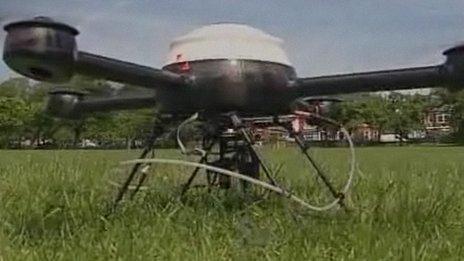Are drones dangerous or harmless fun?
- Published
- comments
Stefan Michalak used his drone camera to film over areas including Brighton, before being warned he could face prosecution
Footage posted online suggests people across the UK are frequently using drone cameras illegally - and incidents reported to police appear to be rising. So why have only three people been prosecuted? And are drones actually dangerous?
YouTube vlogger Stefan Michalak bought a drone camera so he could take breathtaking shots for his videos - but he ended up being questioned by police and threatened with prosecution.
"I was flying it in central London, I was getting crazy shots over the Thames, it was just incredible for a while," he says.
But one day he was filming outside the Natural History Museum on his birthday, external when security guards spotted the drone.
"I got a four-hour intense interview with the Metropolitan Police," says Mr Michalak, who makes video diaries, external about family life with his wife Hannah and their young son.
"I had to show them our videos to show that I wasn't a terrorist."
Stefan Michalak was stopped by security outside the the Natural History Museum then questioned by police
He said police were not sure about the law themselves, but eventually let him go.
He decided to be more careful about where he filmed in future and avoid flying near public buildings.
But eventually, he was contacted by the Civil Aviation Authority (CAA), which had seen his videos and warned him he could be prosecuted for breaching Air Navigation Order legislation.
He is now training to use the drone safely and legally.
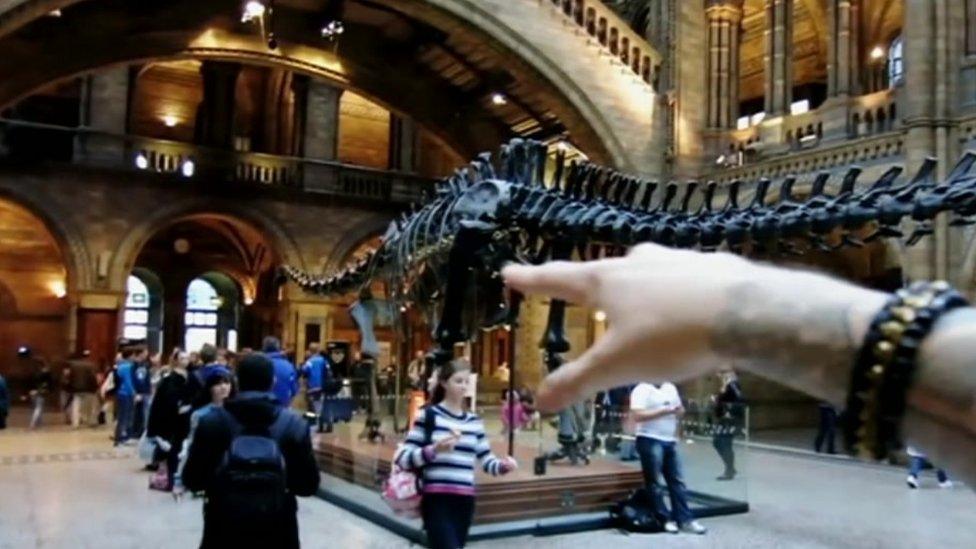
Stefan Michalak planned to fly his drone inside the Natural History Museum, but was stopped by security before he could do so
"You finish the course and you walk away thinking 'Oh my god I was so irresponsible flying that bloody thing for so long'," he says.
"I mean I had one just fall out of the sky once. If somebody was underneath that thing that would have been fatal."
He believes someone will inevitably be killed or seriously injured as drones become more popular.
"In the industry they call it 'The Incident', and it's an incident that everybody knows is going to happen one day," he says.
"Everyone will be looking at the drone industry, saying 'why the hell weren't these regulated more?' There will be such a knee-jerk reaction to it. So people are kind of ready for this to happen."
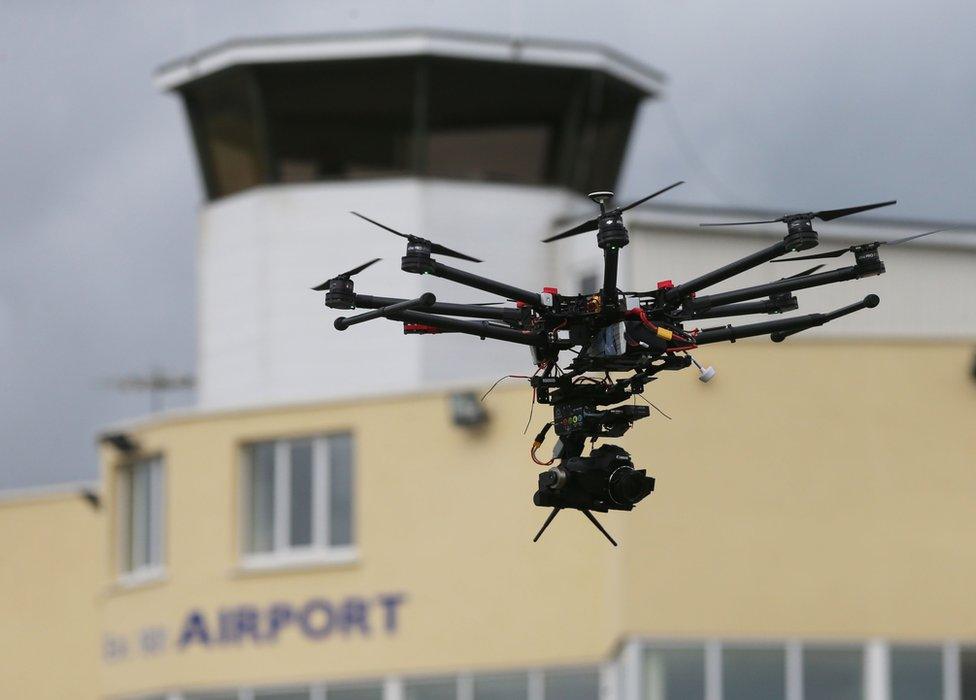
The Civil Aviation Authority said there have been near misses where drones have been flown close to aircraft
So far, the CAA has prosecuted two people for using drones - Robert Knowles, from Cumbria, who flew one over a nuclear submarine facility, external, and Mark Spencer, who flew one over Alton Towers, external.
But the CAA is now concentrating on educating people about drones, recently launching its "Dronecode", external, and will only prosecute in cases when there is a threat to other aviation.
Other cases will be dealt with by the police.
Robert Knowles was prosecuted after filming near a nuclear submarine facility - and almost hitting a bridge
"The most common sense way is that the police look after the protection of people and property on the ground," says Jonathan Nicholson from the CAA.
"They're best placed to do that, they have the skills and the people in place to do that, and we look after the aviation education side and the regulation of commercial users who need a licence from us to actually use a drone for commercial use."
Nigel Wilson from Nottinghamshire is the first drone pilot to be prosecuted by the Crown Prosecution Service following a police-led operation.
The police had evidence of his flights - over football matches and near London landmarks - because he posted videos on YouTube, and he was fined £1,800 in September.
This footage was taken over Derby's iPro Stadium
But searches through YouTube or Vimeo bring up countless other videos that appear to be breaking the rules.
The CAA posts warnings under some of the videos, such as one from 2012 that was filmed from a drone flying close to people and landmarks in London, external.
Drones should not be flown in congested areas like London or within 50m of a person or building, but the drone manufacturer that made the video said its team of drone pilots have a "spotless safety record".
The Civil Aviation Authority warned Team BlackSheep that its drone footage may have broken safety rules
Raphael Pirker, CEO of TBS Avionics, based in Hong Kong, told the BBC: "We firmly believe that it is not something dangerous beyond what we accept to be safe, such as driving a bicycle down the road, or driving our car to work every day.
"We have never hurt anybody or put anybody in danger throughout our now almost 10 years of operation, with over 50 pilots having flown as part of our squad, in both a recreational and professional capacity."

Raphael Pirker, CEO of TBS Avionics, said the Team BlackSheep pilots have a "spotless safety record"
So are regulations needed? What could potentially go wrong?
"We've had safety incidents already reported to us by pilots where they think drones have been flown too close to them for safety, and you've seen elsewhere in the world incidents of people being struck by drones and potentially injured," says Mr Nicholson from the CAA.
"We don't want people to think they are some kind of menace when actually there's a lot of good that can come from drones, but the underlying message is that people who use them need to use their common sense and do it safely."

The Dronecode
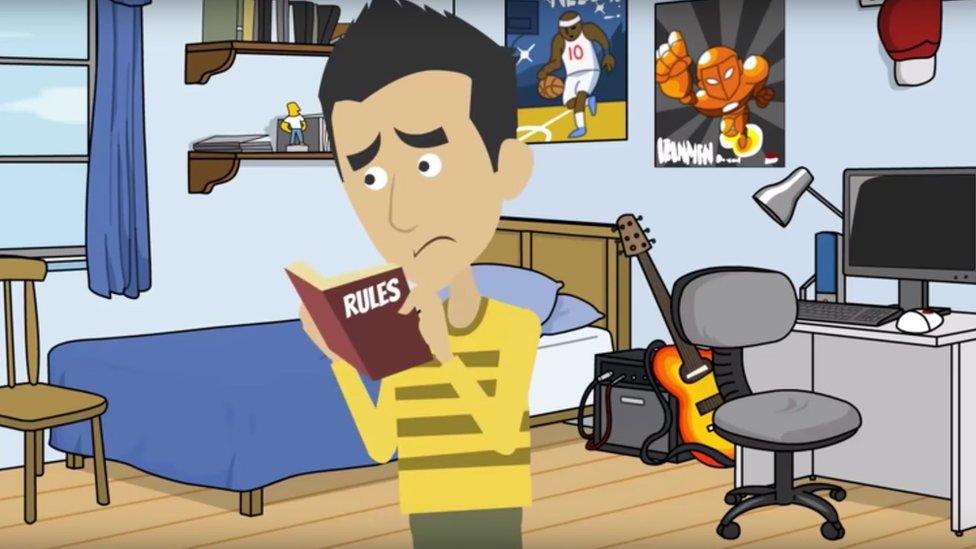
The Civil Aviation Authority launched its Dronecode, external to simplify the rules regarding drones.
Make sure you can see your drone at all times and don't fly higher than 400 feet
Always keep your drone away from aircraft, helicopters, airports and airfields
Use your common sense and fly safely; you could be prosecuted if you don't
Drones fitted with cameras must not be flown:
within 50 metres of people, vehicles, buildings or structures
over congested areas or large gatherings such as concerts and sports events

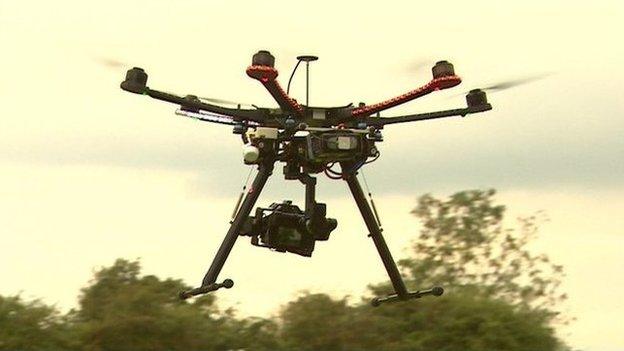
Kent Law School associate lecturer Alan McKenna said there has been a rise in calls to police relating to drones
Sales figures suggest the demand for drones is rising. Maplin alone sold more than 17,000 drones in the UK in the past 12 months - more than double the amount they sold in the previous 12 months.
In a parliamentary answer, transport minister Robert Goodwill said, external the government was "in early discussions with international partners about a drone traffic management system", and is "talking to industry partners about the development of an online application to track and manage small drones".
There will also be a public consultation on drones in spring 2016, he said, giving the public a chance to engage on issues regarding drones.
Data gathered through Freedom of Information requests suggests the public are already contacting police more about drones as they become increasingly popular.
Kent Law School associate lecturer Alan McKenna contacted forces across the UK asking how many calls had been logged relating to drones - and the 34 forces that provided data had logged a total of 441 calls over two years, external.
Dr McKenna has since submitted further requests asking for more recent data, and so far, has discovered what he calls a "massive rise".
For example, in Hampshire there were 27 calls between April and August 2015, compared to only two from the equivalent period in 2014.
Not all of the incidents are necessarily offences, but many do appear to breach the regulations.
The BBC contacted some of the police forces to ask what, if any, action had been taken in response.
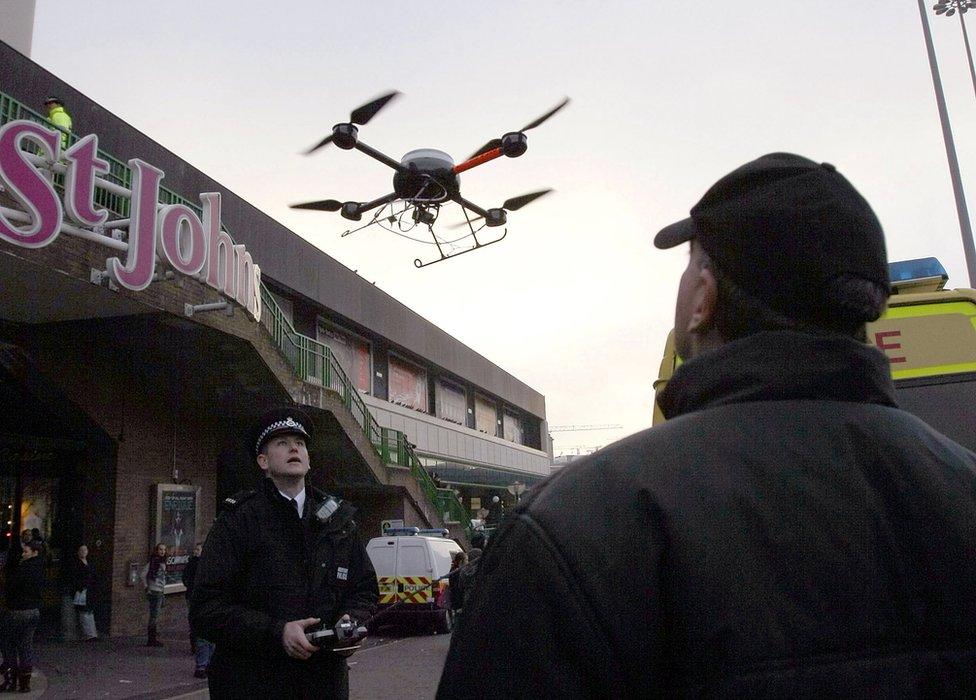
Merseyside Police was itself warned by the CAA that it was using a drone for police work without an appropriate licence
Hampshire Constabulary - which had reported incidents including a drone crashing into a member of the public and causing injury, a drone crashing in a residential area, and a drone that "crash landed" in a property - said it could not say whether any action had been taken as it does not keep these records.
A force spokesperson said: "As part of the national policing framework, we are creating an action plan for drone-related incidents which will be introduced in the future and enable such recordkeeping."
Incidents reported in Kent included a drone almost hitting a caller, a drone flying towards Gatwick Airport, a drone falling from the sky and hitting a caller's vehicle, and a drone flying near a school then crashing.
"In most reports that Kent Police has received regarding unmanned crafts it has not been possible to identify who was flying them," the force said in a statement.
"However, in two instances where the owners were identified advice was given. One related to a professional photographer who was working, and the other was dealt with privately and police involvement declined."
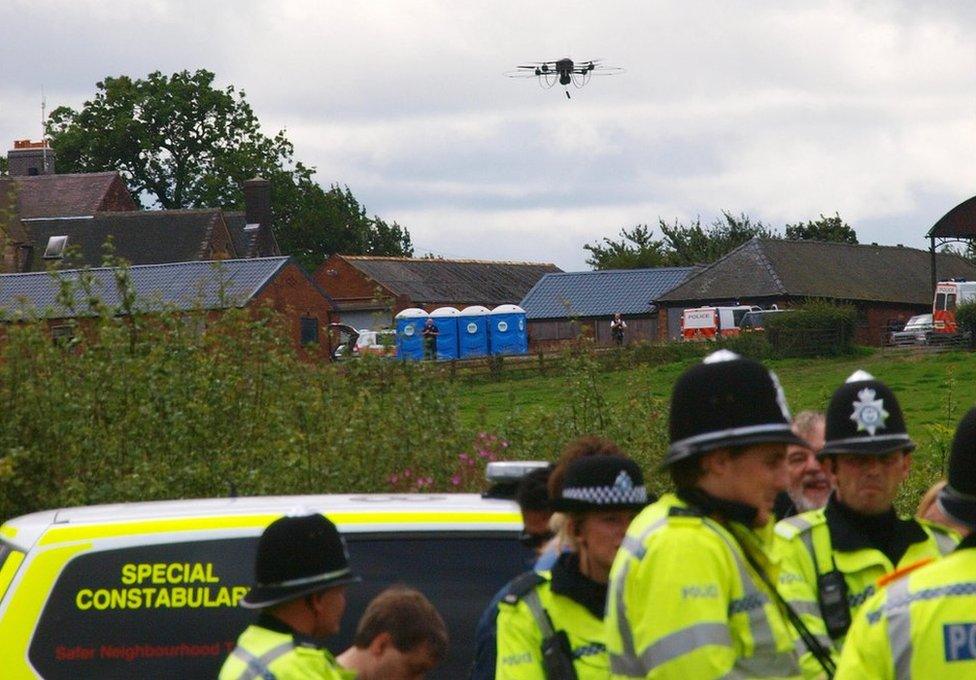
Some police forces have used drones to film protesters, such as those near the BNP festival in Codnor in August 2009
Dr McKenna believes a lack of knowledge could also explain why there has only been one police-led prosecution so far.
"Every day they receive a whole plethora of documentation covering all sorts of issues and to keep on top of it is impossible," he says.
"I think the police are trying to train the officers more widely but it's going to be a difficult task."
In fact, Merseyside Police was itself warned by the CAA, external that it was using a drone without an appropriate licence - and the £13,000 piece of equipment later crashed into the River Mersey during a routine training exercise.
Limited resources could also make it difficult for police, according to Dr McKenna.
"You've got to identify who's flying the thing," he said.
"That's going to take resources and could it be argued they've got far more important things to do? Obviously with the cutbacks it's a difficult one."
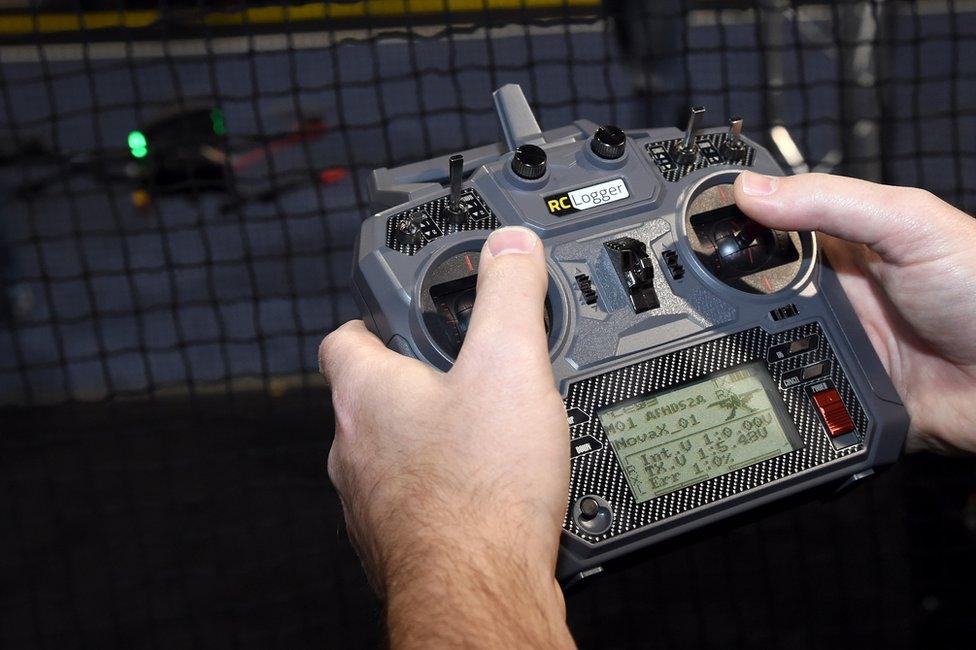
The CAA said prosecuting people who use drones illegally is not the only solution
But prosecution is not necessarily the best way, according to Mr Nicholson from the CAA.
"There's lots of things you can do prior to a prosecution," he says.
"We've seen a lot of people who actually want to do it properly and actually as part of the condition for not proceeding with any action they've actually taken the steps to become an approved commercial drone operator.
"That's going to make them much safer, they are going to know exactly what they are doing and they will be complying with the law. So a prosecution is not the only solution, it's the ultimate solution."
Freelance filmmaker Nathaniel Durman was warned he could be prosecuted for filming the Shard
Freelance filmmaker Nathaniel Durman, external and his brother used a drone to film The Shard, external in December 2014, and nobody questioned it.
"No police came over to us or anything, and considering it's a terrorist target it's kind of worrying that we weren't caught in the act," he said.
He said he didn't have "much of an understanding of the rules" before he did it, but is "very aware of the regulations now", after the CAA saw his video online and warned him he could prosecuted.
However, he is concerned the regulations are "a bit too strict to promote any creativity with the drone".
"I just think it's a really great technology that shouldn't be controlled too much," he says.
Filmmakers like Mr Durman could go through training so they can fly a drone legally, but he believes the cost is prohibitive.
"It's quite an expensive licence to obtain because it's £1,500 or something to go through the training course," he says.
"I'll sort of see how it pans out. If it becomes any more stricter than it is I don't think there's much point in getting a licence and pursuing it as a career because you won't be able to do many interesting things with it."
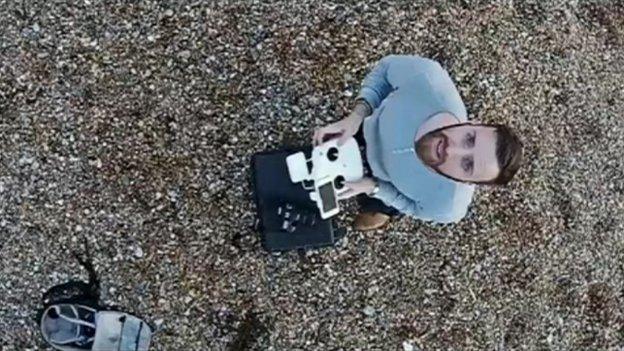
Stefan Michalak is now training to use his drone camera safely
Meanwhile, Mr Michalak has completed most of his training and just needs to pass a flight test before he applies to the CAA for permission to use his drone again.
"I get why the rules are in place, and I didn't before," he says.
"I realise how irresponsible I was and now I'm so happy that I did the course.
"As somebody who wants to collect beautiful footage, a drone just opens up so many opportunities to you, which is why I'm desperate to have this thing back."
- Published15 September 2015
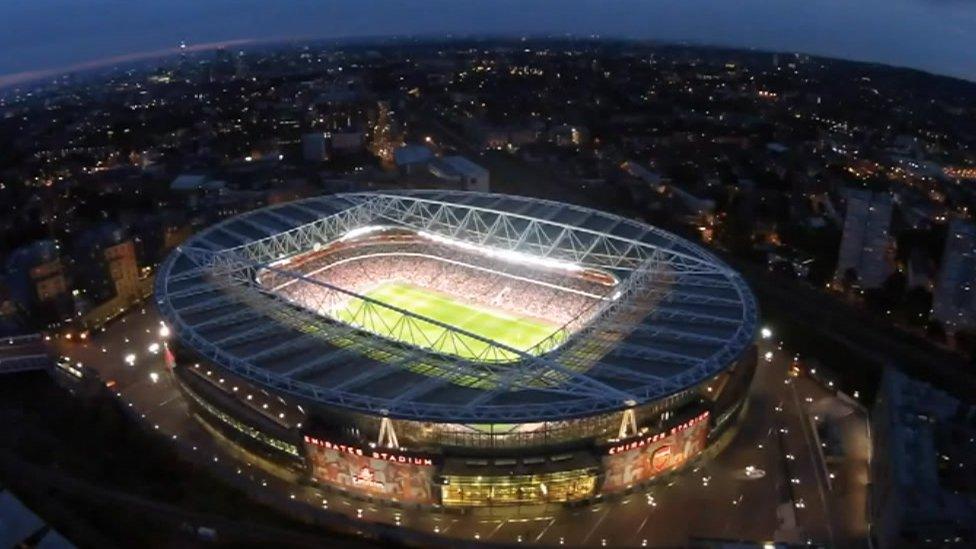
- Published25 August 2015
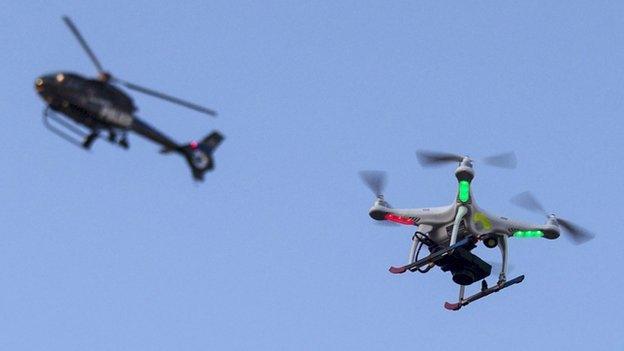
- Published22 July 2015
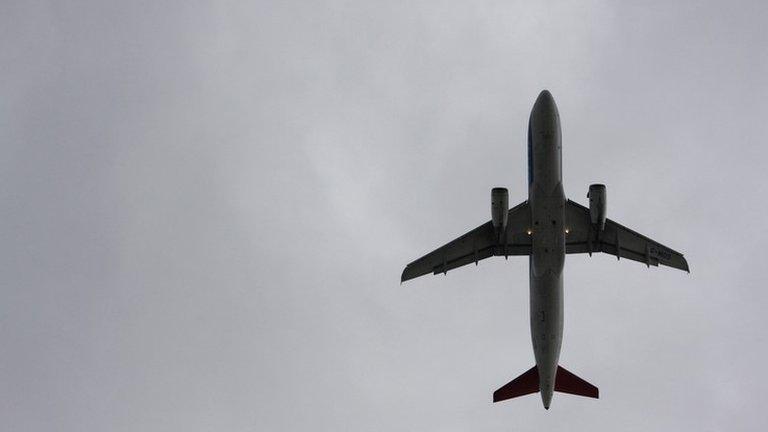
- Published28 May 2015
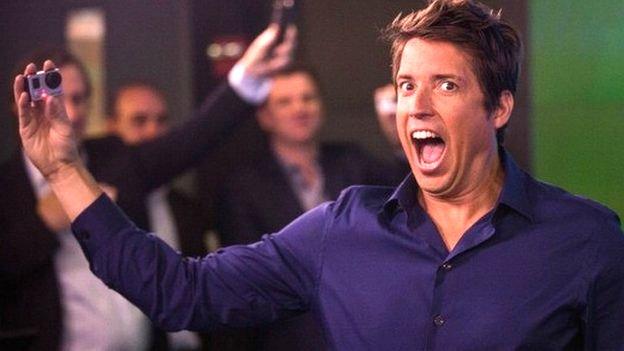
- Published1 July 2015
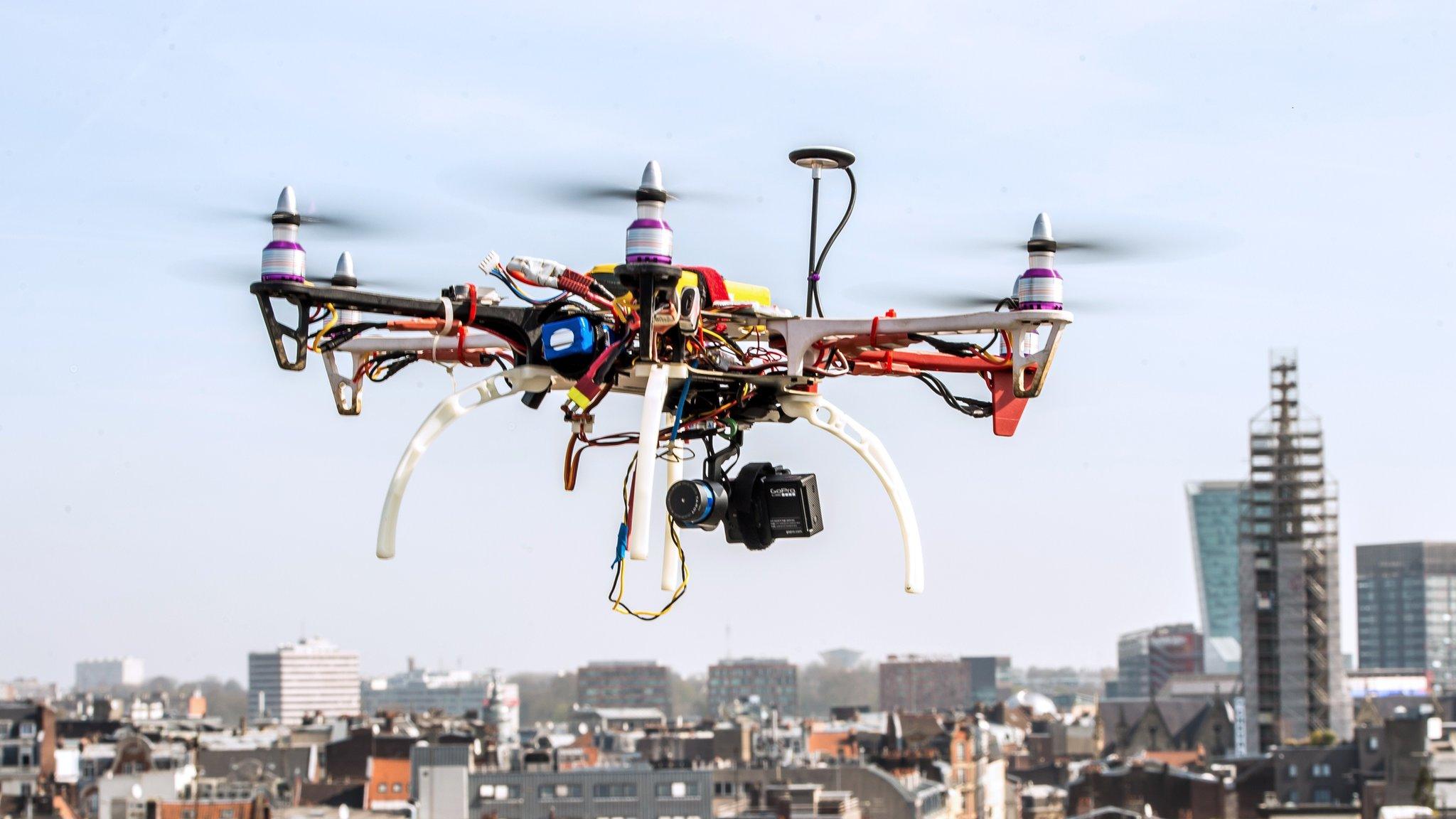
- Published27 October 2014
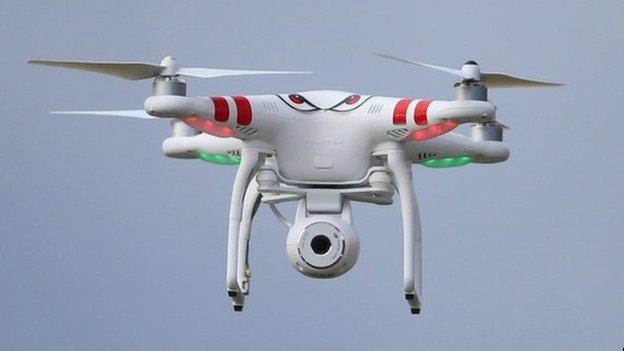
- Published29 October 2013
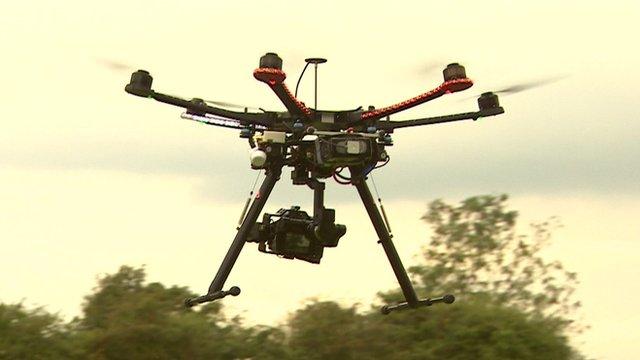
- Published31 October 2011
